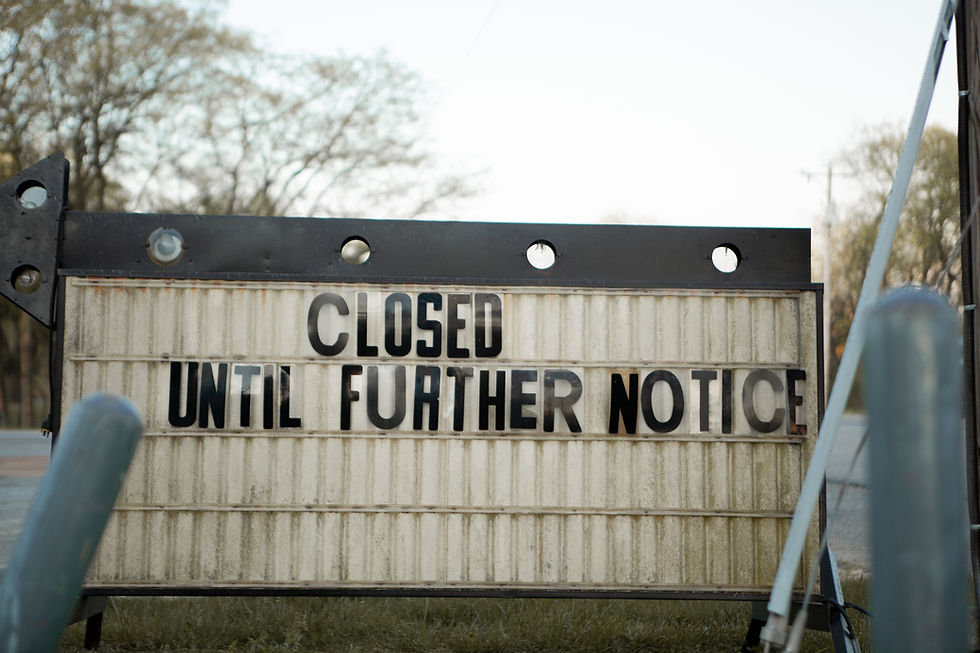Supreme Court Lets Congress “Get Its Act Together” as Shutdown Nears Possible End
- Nov 12, 2025
- 4 min read

With Congress finally getting its act together and edging toward a deal to end the prolonged government shutdown, the Supreme Court has decided to let the political process get around to its natural resolution. The Court will keep in place a short pause on a federal judge’s ruling that had ordered the Trump administration to fully fund SNAP benefits in November.
Currently, about 42 million Americans get by with the help of SNAP—the Supplemental Nutrition Assistance Program—which provides essential food aid to low-income families across the country.
The Supreme Court Steps Back
On Friday, Justice Ketanji Brown Jackson granted a temporary stay, blocking a lower court’s order that required the administration to redirect around $4 billion from other food security programs to SNAP payments. That stay was set to expire Tuesday night but will now remain active until 11:59 p.m. ET Thursday, giving Congress more time to get down to business and finalize a funding deal.
In its Monday filing, the administration pointed out that Congress seemed close to breaking the deadlock, and urged the justices to maintain the pause to allow the political process to get off the ground and reach a conclusion without judicial interference. Justice Jackson—who handles emergency appeals from the First Circuit—said she would have denied the extension, but no other justices disagreed with the full Court’s decision.
Legal Dispute and Federal Challenges
The Trump administration had warned states in late October that November’s food benefit payments might not go out because of the shutdown. That warning prompted a coalition of cities and nonprofits to sue, arguing that the government must find a way to keep families fed. A Rhode Island judge ordered the USDA to use its contingency fund, but the administration appealed, claiming it needed more time to get to the bottom of how best to reallocate funds without harming other programs.
A USDA official overseeing SNAP said in a recent court filing that benefits could be reduced by as much as 35% in November if the shutdown continued. The remark sparked further criticism from state leaders who wanted to get in on the act and pressure Congress to reopen the government.
Hopes of a Resolution
The House of Representatives is expected to get together as early as Wednesday to vote on a Senate-approved funding bill that would finally reopen the government. If passed, it would end the historic 42-day shutdown—the longest in U.S. history—and allow the administration to get back into normal operations, including full SNAP funding.
Still, officials caution that even if the shutdown ends this week, it may take time for payments to fully resume. For now, both lawmakers and citizens are eager for Washington to stop arguing and simply get down to business—restoring stability to millions who depend on federal aid to get by.
1. get one’s act together
Definition: To start organizing oneself and acting effectively, especially after a period of confusion or delay.
Example: After weeks of missed deadlines, the team finally got its act together and finished the project.
Question: When was the last time you had to get your act together to meet a goal or deadline?
2. get around
Definition: To find a way to deal with or avoid a problem, or simply to move from place to place.
Example: The company found a way to get around the new restrictions by adjusting its import strategy.
Question: How do governments sometimes get around difficult political or legal obstacles?
3. get by
Definition: To manage to survive or cope with limited resources.
Example: Many people have to get by on very small salaries during economic downturns.
Question: How do families usually get by when times are financially difficult?
4. get down to business
Definition: To start focusing on the important or practical matters after talking or delaying.
Example: After some small talk, the committee got down to business and reviewed the budget.
Question: In meetings, do you prefer to chat first or get down to business right away?
5. get off the ground
Definition: To start or begin successfully, often referring to a project or plan.
Example: The new housing project is finally getting off the ground after years of planning.
Question: What factors help a new idea or project get off the ground?
6. get in on the act
Definition: To become involved in an activity that others are already benefiting from.
Example: When online sales started booming, small retailers wanted to get in on the act too.
Question: Have you ever wanted to get in on the act when others were succeeding at something?
7. get together
Definition: To meet socially or gather for a shared purpose.
Example: The neighbors got together to organize a community clean-up day.
Question: How often do you get together with friends or colleagues outside of work?
8. get back into
Definition: To return to doing something after stopping for a while.Example: After a long break, she’s finally getting back into painting.Question: What’s something you’d like to get back into that you haven’t done recently?
9. get out of
Definition: To avoid doing something or to escape from a situation or commitment.
Example: He tried to get out of jury duty by claiming he was too busy.
Question: Do you think people should ever try to get out of responsibilities? When, if ever, is it justified?
10. get to the bottom of something
Definition: To discover the true reason or explanation for a problem or situation.
Example: Investigators are still trying to get to the bottom of the data breach.
Question: Why is it important for journalists and courts to get to the bottom of an issue before acting?



Comments